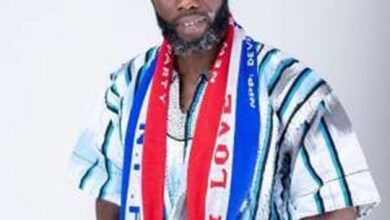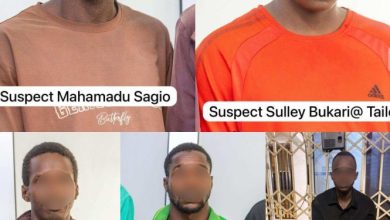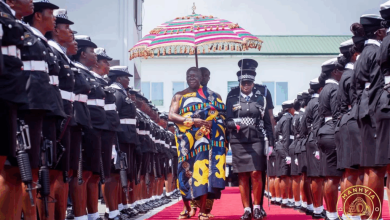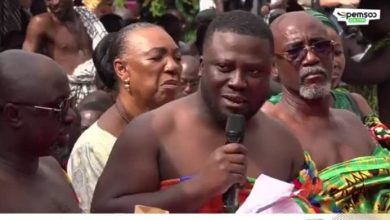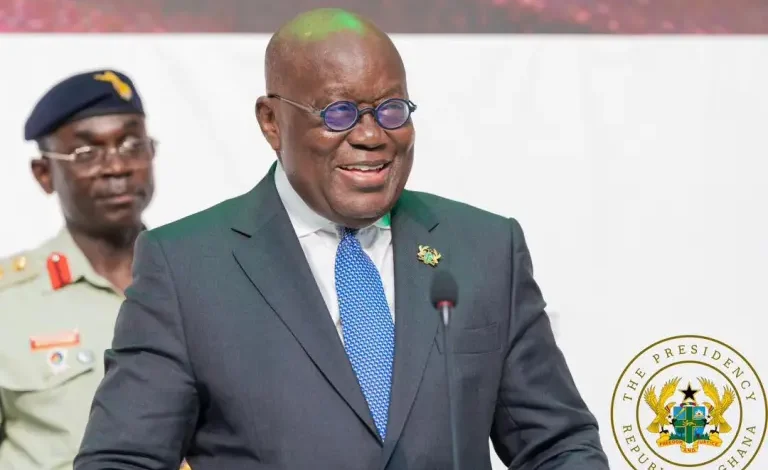
Former President Nana Addo Dankwa Akufo-Addo has described Ghana’s debt restructuring process under the G20 Common Framework as one of the darkest and most painful episodes of his presidency, admitting that while it brought temporary relief, the human and economic toll was devastating.
Delivering an address at the AU-EU High-Level Seminar in Brussels on Thursday, 2 October 2025, on the eve of the AU-EU Summit, the former President said the debt restructuring exercise had left scars that still troubled him deeply.
“I witnessed the suffocating grip of debt on our economy and on our citizens. This deeply troubled me and still does,” he told the gathering of African and European leaders.
Nana Akufo-Addo recalled that when Ghana adopted the Common Framework in 2023, the process was marked by delays, complex negotiations, and an uneven burden-sharing. “Persistence paid off,” he admitted.
He noted that by 2024, Ghana had successfully restructured $13 billion in Eurobonds, securing commitments that delivered about $10.5 billion in external debt service relief through 2026.
He mentioned that the country’s debt-to-GDP ratio fell from the mid-80s to 70.5 percent, which helped restore investor confidence and anchor an IMF-supported programme. But beneath the macroeconomic progress, he said, lay a painful human story.
“The process was sequential, not simultaneous. It prolonged uncertainty. It eroded investor confidence. And it inflicted a heavy cost at home that was a dark cloud moment for me as President,” he admitted.
The most painful part, Nana Akufo-Addo explained, was the impact on ordinary citizens. Domestic bondholders, including pensioners, young people, and small investors, suffered substantial losses. “These were people whose lives and livelihoods were shattered in the process,” he lamented.
Broken global system
Beyond Ghana’s experience, the former President insisted that Africa’s $1 trillion debt burden is symptomatic of a global financial system “not built to free us, but to bind us.” He argued that more than 30 African countries now spend more on interest payments than on public health, a situation he described as both unsustainable and morally unacceptable.
“Every dollar diverted to creditors is a dollar taken from a hospital, from a child’s vaccination, from a community’s future,” he declared, calling it “not economics, but inequity.”
Debt relief as justice
The former President renewed his appeal for a bold, comprehensive, and permanent global debt relief programme. He rejected the idea that debt cancellation should be seen as charity, framing it instead as justice.
“Justice delayed is justice denied. Debt relief for Africa is not an act of generosity. It is an act of justice,” he further stated
Nana Akufo-Addo further proposed a framework of “Debt Relief for Green Investment and Resilience”, which would tie debt cancellation directly to financing climate adaptation and sustainable growth. He pointed to Africa’s vulnerability to climate shocks despite contributing less than 4% to global emissions, stressing that much of the continent’s debt had been incurred in responding to crises “not of our making.”
Quoting the International Court of Justice, he reminded world leaders that there exists a legal and moral duty for reparation for climate damages. “By even the most conservative estimates, that runs into the trillions,” he added.
He called for the immediate debt service suspension, comprehensive restructuring and new concessional financing mechanisms.
“To our European partners, I say this: hear the voice of your neighbouring continent. Stand with the AU and South Africa’s G20 Presidency to advance ambitious reform of the Common Framework,” he pleaded.
Beyond the debt trap
Nana Akufo-Addo also acknowledged Africa’s responsibility to strengthen domestic institutions, fight corruption, diversify economies, and fully leverage the African Continental Free Trade Area (AfCFTA).
But, he cautioned, without global reforms, “even the most courageous reforms will be undermined by predatory lending, punitive trade terms, and a financial system that too often works against us rather than with us.”
The President added: “The sacrifices we make today, the compromises, the collaborations we engage in today can only inure to the benefit of our world. When Africa rises free from the weight of debt, the whole world rises with it.”

